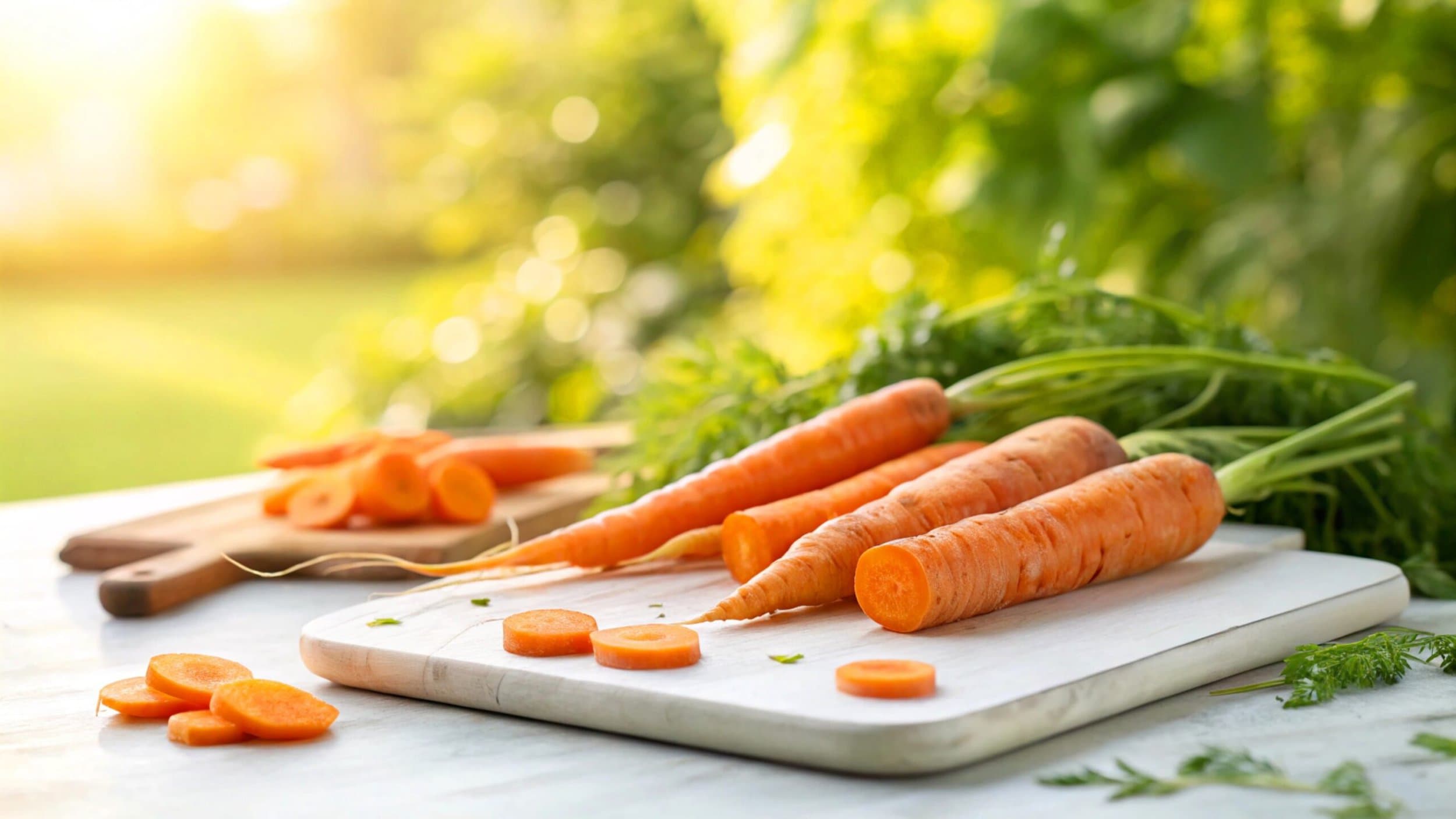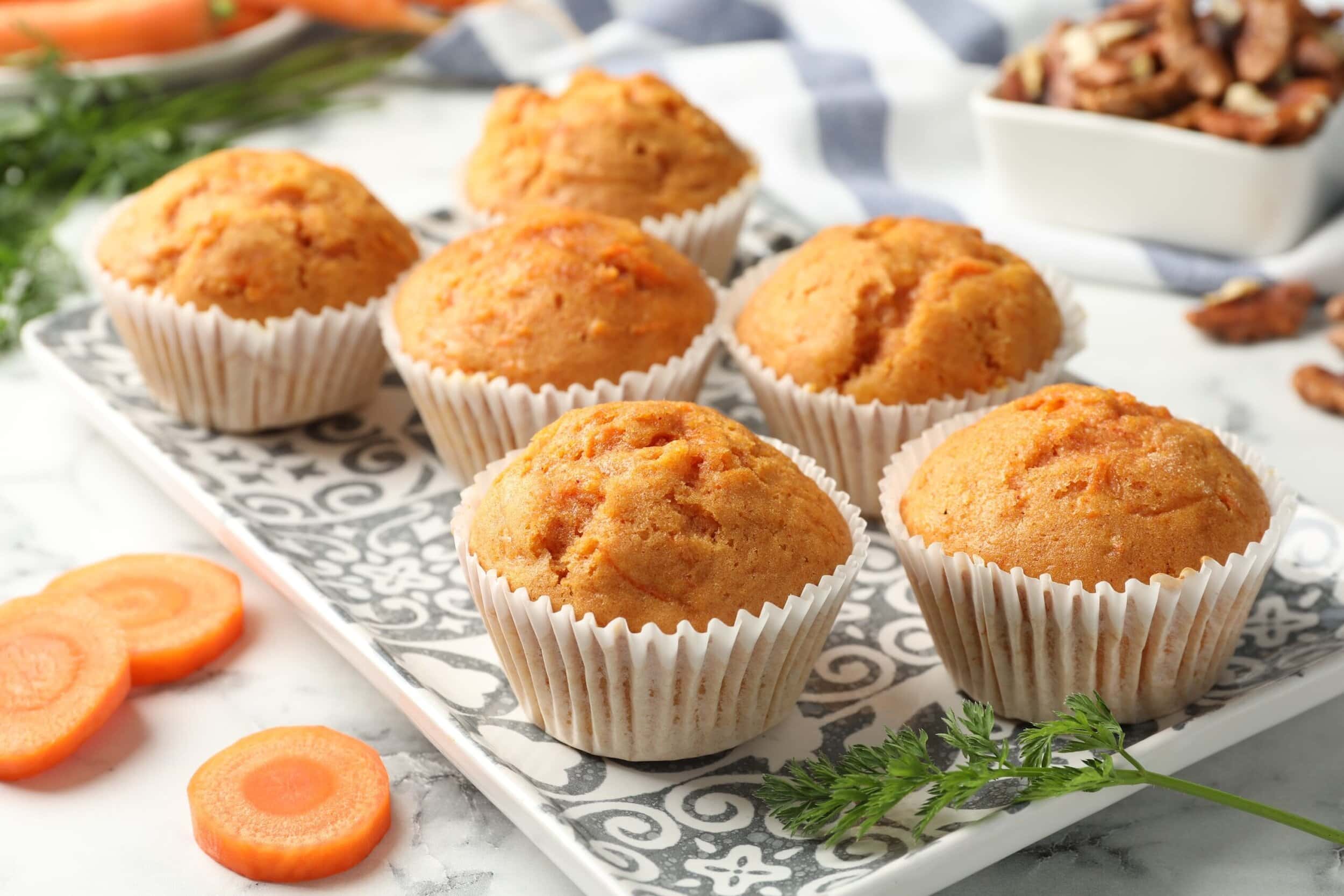Peaches are one of the smartest snacks you can reach for when you’re working toward your weight-loss goals. They’re incredibly low in calories, packed with water to keep you hydrated, and loaded with fiber that helps stabilize your blood sugar. Plus, they satisfy your sweet tooth for just a few calories.
But not all peach products are the same. While a fresh, whole peach is a health superstar, those syrupy canned varieties? Not so much. Let’s dive into everything you need to know about making peaches work for your health.
✅ Quick answer
Yes, peaches are an excellent food for weight loss. At just 59 calories for a medium peach, they’re low in calories and high in water, helping you feel full.
🚀 Weight-loss benefits of peaches
- They’re low in calories – With only about 59 calories per medium peach, you can enjoy a satisfying snack that curbs hunger. Incorporating low-calorie fruits like peaches can make maintaining a calorie deficit more sustainable and enjoyable.
- They’re high in water content – Peaches are almost 90% water, which contributes to their low calorie count and helps you feel full. Foods with high water content help increase feelings of fullness and keep you hydrated, which can reduce cravings for less healthy snacks.
- They’re a good source of fiber – Each medium peach provides about 2.3 grams of dietary fiber, which is important for digestive health and satiety. Fiber slows down digestion, helping to stabilize blood sugar levels and prolonging the feeling of fullness after eating, which helps control your appetite and reduce overall calorie intake.
⚠️ Things to be mindful of when eating peaches
- Skip the canned peaches in syrup – Peaches canned in heavy syrup are much higher in calories and lack the fruit’s natural health benefits. Choose fresh peaches or those canned in their own juice with no added sugar more often.
- Potential for FODMAP sensitivity – Peaches contain fructans and polyols, which are types of FODMAPs that can cause bloating and digestive discomfort for people with irritable bowel syndrome (IBS) or FODMAP sensitivity.
Rx weight loss, the right way, with Noom
Get access to prescription weight loss medication with Noom.🥗 Nutrients in peaches (per medium peach, ~150g)
| Nutrient | Amount | % RDA* |
|---|---|---|
| Calories | 59 calories | 3% |
| Protein | 1.4 g | 3% |
| Total carbs | 14.3 g | 5% |
| Fiber | 2.3 g | 8% |
| Sugars | 12.6 g | — |
| Total fat | 0.4 g | <1% |
| – Saturated fat | <0.1 g | <1% |
| – Monounsaturated fat | 0.2 g | — |
| – Polyunsaturated fat | 0.2 g | — |
| Omega-3 | 0 g | — |
| Omega-6 | 0 g | — |
Peaches are a sweet and smart choice if you’re watching your calories. One medium peach has just about 59 calories, yet delivers juicy flavor and natural sweetness that can make healthy eating feel effortless.
Most of a peach’s calories come from carbohydrates (about 14 grams)—mainly natural sugars—but it also provides around 2 grams of fiber, which helps slow sugar absorption and keeps you feeling satisfied. That combo of fiber and water is what makes peaches surprisingly filling for such a light snack.
They’re low in fat and protein, so if you want to make your snack more balanced, try pairing your peach with Greek yogurt or a handful of almonds for an extra boost of protein and staying power.
*Recommended dietary allowance (RDA) is defined as the average daily amount of nutrients needed to meet the requirements of nearly all healthy people in a specific group.
💊 Vitamins & minerals in peaches (per medium peach, ~150g)
| Vitamin/Mineral | Amount | % RDA* |
|---|---|---|
| Copper | 0.2 mg | 12% |
| Vitamin C | 9.9 mg | 11% |
| Niacin (B3) | 1.2 mg | 8% |
| Potassium | 285 mg | 6% |
| Manganese | 0.1 mg | 4% |
| Vitamin K | 3.9 μg | 3% |
| Vitamin A | 24 μg | 3% |
| Magnesium | 14 mg | 3% |
| Zinc | 0.3 mg | 3% |
| Vitamin B6 | <0.1 mg | 2% |
Peaches may be low in calories, but they’re surprisingly rich in nutrients that help your body run smoothly. One medium peach offers a healthy mix of vitamins and minerals, including vitamin C, copper, and potassium—three nutrients that play key roles in energy, immunity, and hydration.
That 11% of your daily vitamin C supports immune function, helps your body repair tissue, and even keeps your skin glowing by boosting collagen production. The copper in peaches supports red blood cell formation and nerve health, while potassium helps balance fluids and maintain steady blood pressure.
While peaches aren’t a powerhouse for every nutrient, they offer a broad spectrum of vitamins and minerals that add up over time—making them a refreshing, nutrient-dense way to support your overall wellness.
🔍 Nutrient breakdown
Glycemic index (GI) of peaches
Glycemic index: 42 (Low)
💡Tip: Low-GI foods like peaches release sugar into the bloodstream slowly, helping to prevent energy spikes and crashes that can lead to cravings and make it easier to stick to your weight-loss plan.
Are peaches high in protein?
❌ No: A medium peach contains 1.4 g of protein per serving. This is a very low amount and doesn’t contribute significantly to daily protein needs. For weight loss and muscle maintenance, it’s crucial to get adequate protein from other sources.
🔹 Better protein alternatives: Greek yogurt | Chicken breast | Lentils
Are peaches high in fiber?
❌ No: A medium peach has 2.3 g of fiber per serving. While this contributes to your daily intake and aids in satiety, peaches are not considered a high-fiber food compared to others. The combination of fiber and water still makes them a filling choice.
💡Tip: To boost your fiber intake, eat the peach with its skin on, as the skin contains a significant portion of the fruit’s fiber and nutrients.
Are peaches low in carbs?
✔️ Yes: A medium peach has 14.3 g of carbs per serving. This is relatively low and can fit into many balanced diets, though it may be too high for strict ketogenic plans. Most of the carbs come from natural sugars, providing a quick source of energy.
💡Tip: Pair your peach with a protein source like cottage cheese to slow carb absorption and stay full longer, which helps prevent blood sugar spikes and crashes.
Are peaches gluten-free?
✔️ Yes: Peaches are a fruit and are naturally 100% gluten-free. They are a safe and healthy choice for individuals with celiac disease or gluten sensitivity. Always ensure there is no cross-contamination if you are buying processed or prepared peach products.
Are peaches good for fat loss?
✔️ Yes: Due to their low-calorie and high-water profile, peaches are helpful for fat loss. It allows you to eat a larger, more satisfying volume of food for fewer calories, which helps you maintain a calorie deficit without feeling deprived.
💡Tip: Replace high-calorie desserts like ice cream or cake with a fresh, juicy peach to save hundreds of calories while still satisfying your sweet tooth.
🍽️ Diet compatibility: Which diets include peaches?
| Diet | ✅ Yes / ❌ No | Why |
| Keto | ❌ | With over 12 grams of net carbs per medium peach, peaches are generally too high in sugar to fit into a strict ketogenic diet. In a more moderate low-carb plan, they would fit better. |
| Paleo | ✅ | Peaches are a natural, unprocessed fruit, making them perfectly compliant with the Paleo diet. Hunter-gatherer diets would have included seasonal fruits like peaches, and they’re a great way to satisfy a sweet tooth naturally. |
| Mediterranean | ✅ | The Mediterranean diet emphasizes fresh fruits, vegetables, and whole foods, making peaches an excellent fit. They can be enjoyed as a snack, in salads, or as a healthy dessert, and their heart-healthy nutrients align perfectly with the diet’s principles. |
| Vegan | ✅ | As a plant-based food, peaches are 100% vegan. They’re a versatile fruit that can be used in a wide variety of vegan dishes, from breakfast bowls to desserts, and they provide essential vitamins and minerals for those on a plant-based diet. |
| Gluten-free | ✅ | Peaches are naturally free of gluten and are a safe and delicious choice for anyone following a gluten-free diet. They offer a sweet and nutritious option for snacks and meals without the risk of gluten exposure. |
Peaches fit seamlessly into many healthy eating styles thanks to their simple, whole-food nature. Naturally sweet and unprocessed, they’re a great match for plans like the Mediterranean or Paleo diet, where whole fruits, clean carbohydrates, and antioxidants take center stage.
They’re also a favorite among those following plant-based or vegan lifestyles, adding flavor, hydration, and nutrients—no animal products required. And because peaches are naturally gluten-free, they’re a safe and delicious choice for anyone with celiac disease or gluten sensitivity.
The only major eating plan where peaches don’t quite fit? The keto diet. Peaches’ natural sugars can make it hard to stay in ketosis. But for nearly every other balanced, health-focused approach, peaches are a nutritious, satisfying food you can feel good about including.
🌟 Are peaches healthy? What are the health benefits
Metabolic health: Are peaches good for your metabolism?
- Boosts metabolism? ❌ No – Peaches do not contain any compounds known to significantly boost metabolic rate. However, their nutrients support overall metabolic health, and a healthy metabolism relies on a steady supply of vitamins and minerals, which peaches provide.
- Improves insulin sensitivity? ✔️ Yes – Studies on stone fruits suggest that their bioactive compounds, particularly polyphenols, may help improve insulin sensitivity. These compounds can combat metabolic syndrome by modulating glucose and fat metabolism, helping your body manage blood sugar more effectively.
- Effect on fat storage? Helps prevent – Phenolic compounds found in peaches have been shown to have anti-obesity properties. They may help prevent the buildup of visceral fat and reduce inflammation associated with obesity, making them a beneficial fruit for managing body composition.
💡Tip: Pair peaches with cinnamon, a spice known to help improve insulin sensitivity, by sprinkling it over fresh slices or grilled peach halves for a delicious and metabolically supportive snack.
Cholesterol impact: Do peaches affect cholesterol levels?
- Does it lower LDL (bad) cholesterol? ✔️ Yes – The soluble fiber in peaches can help lower LDL cholesterol levels. This type of fiber binds to cholesterol in the digestive system and removes it from the body. Additionally, the phenolic compounds in peaches may help reduce the oxidation of LDL cholesterol, a key step in the development of atherosclerosis.
- Does it raise HDL (good) cholesterol? Data limited – There is not enough direct evidence to suggest that eating peaches can significantly raise HDL cholesterol. However, a diet rich in fruits and vegetables is generally associated with better overall cholesterol profiles, so focusing on a healthy lifestyle is the most effective way to improve HDL levels.
- Overall impact on heart health? Favorable – Peaches are heart-friendly due to their potassium, fiber, and antioxidant content. Potassium helps control blood pressure, while fiber and antioxidants combat cholesterol and inflammation. Including peaches in a balanced diet supports cardiovascular health.
💡Tip: Combine sliced peaches with a bowl of oatmeal, which is rich in beta-glucan, a type of soluble fiber well-known for its cholesterol-lowering effects, to create a heart-healthy breakfast.
Can I eat peaches for a calorie deficit?
✔️ Yes, with confidence: Peaches are an excellent choice for a calorie deficit. Their low calorie count (59 calories per medium peach) and high water content allow you to eat a satisfying volume of food for very few calories. This helps manage hunger while keeping your total energy intake low.
💡Tip: A medium-sized peach (about 150g) contains just under 60 calories, making it a perfect, pre-portioned snack that you can grab on the go without worrying about overdoing it.
Are peaches rich in antioxidants?
✔️ Yes: Peaches are a good source of several antioxidants, including Vitamin C, carotenoids (like beta-carotene, which converts to Vitamin A), and various phenolic compounds such as chlorogenic acid and anthocyanins (in red-fleshed varieties). These compounds help protect your body’s cells from oxidative stress and damage caused by free radicals, which is linked to a lower risk of chronic diseases.
💡Tip: The skin and the flesh right beneath it are often richest in antioxidants, so eat the whole fruit for maximum benefit and don’t peel your peach.
Do peaches support gut health?
✔️ Yes: The dietary fiber in peaches acts as a prebiotic, feeding beneficial gut bacteria. A healthy gut microbiome is essential for proper digestion, immune function, and even mental health. Consuming fiber-rich fruits helps maintain a balanced and thriving internal ecosystem.
Do peaches support digestion?
Positive: Both soluble and insoluble fiber in peaches aid digestion. Insoluble fiber adds bulk to stool, promoting regularity and preventing constipation. Soluble fiber forms a gel-like substance, which can help soothe the digestive tract.
⚠️ Sensitive tummy? – Peaches contain fructans, a type of FODMAP that can cause gas, bloating, and discomfort in individuals with Irritable Bowel Syndrome (IBS). If you are sensitive, you may need to limit your portion size or avoid them during a flare-up.
Do peaches help you feel satiated and less hungry?
Moderate: The combination of fiber and high water content in peaches helps you feel full and satisfied. The volume of the fruit fills your stomach, while the fiber slows down digestion. This makes peaches an effective snack for keeping hunger at bay between meals.
😌 Satiety Level: Medium
💡Tip: For a snack with even greater staying power, pair sliced peaches with a source of protein and healthy fat, such as a handful of walnuts or a scoop of cottage cheese, to extend fullness.
Do peaches help with nighttime cravings?
✔️ Yes: A fresh peach can be a great way to satisfy a late-night craving for something sweet. It provides natural sugar and fiber without the high calories and processed ingredients of typical desserts like cookies or ice cream. This can help you stay on track with your goals without feeling deprived.
💡Tip: Keep pre-washed peaches in your fridge for easy access when nighttime cravings hit, so you have a healthy option ready to go.
Do peaches help reduce inflammation?
✔️ Yes: Peaches are rich in polyphenols and Vitamin C, which have anti-inflammatory properties. Chronic inflammation is linked to many diseases, including heart disease and arthritis. A diet rich in antioxidant-filled fruits like peaches can help reduce systemic inflammation.
Are peaches beneficial for brain health?
✔️ Yes: The antioxidants in peaches help protect brain cells from oxidative stress, which is a contributor to neurodegenerative diseases. Some research suggests that flavonoids found in fruits may also improve cognitive function and memory.
Can peaches improve skin and hair health?
✔️ Yes: Vitamin C is essential for collagen production, the protein that gives skin its elasticity and strength. The Vitamin A in peaches supports skin cell turnover and protects against UV damage. These nutrients contribute to a healthy, glowing complexion and can support hair health as well.
Can peaches help balance hormones?
❌ No, limited evidence: There is no direct evidence that peaches have a significant effect on balancing hormones. A balanced diet, healthy fats, and adequate protein are more impactful for hormonal health. However, their anti-inflammatory properties can support the endocrine system indirectly.
💡Tip: Focus on getting enough healthy fats from sources like avocados, nuts, and fatty fish, along with adequate protein and fiber-rich foods like peaches, to support overall hormonal balance.
🍽️ Best ways to eat peaches for weight loss
- Eat them fresh and whole: The simplest—and most satisfying—way to enjoy peaches for weight loss is to eat them fresh, skin and all. The skin adds extra fiber, which helps you stay full longer, while the fruit’s vitamins and water content keep you hydrated and satisfied. A whole peach is an easy, portable snack that feels indulgent without the extra calories.
- Pair with protein: For a more balanced (and filling) option, combine peaches with a protein source like Greek yogurt, cottage cheese, or even blend them into a protein smoothie. The combination of protein and natural sugars helps keep your blood sugar steady and your energy levels stable—so you feel full and fueled for hours.
- Avoid canned in syrup or juices: Canned peaches in heavy syrup or sweetened juices are loaded with added sugar and extra calories. Those versions also lack the fiber that makes fresh peaches so satisfying. Stick with fresh, frozen, or canned peaches packed in water or their own juice for the best nutrition and flavor.
🍏 Best alternatives & comparisons (per 150g serving)
| Food | Calories | Carbs | Fiber | Protein | Fat |
|---|---|---|---|---|---|
| Peach (medium) | 59 | 14.3 g | 2.3 g | 1.4 g | 0.4 g |
| Nectarine | 66 | 15.9 g | 2.6 g | 1.7 g | 0.5 g |
| Apple (with skin) | 78 | 20.7 g | 3.6 g | 0.5 g | 0.3 g |
| Strawberries | 48 | 11.6 g | 3.0 g | 1.1 g | 0.5 g |
| Plum | 69 | 17.1 g | 2.1 g | 1.1 g | 0.5 g |
When you’re focused on weight loss, comparing similar foods can help you make smart, sustainable choices. Peaches hold their own as a low-calorie fruit, with slightly fewer calories than nectarines, apples, or plums. Like other stone fruits, they strike a nice balance of natural sweetness, hydration, and fiber—a combo that supports satiety without adding much to your daily calorie count.
If you’re looking for an even lighter option, berries—especially strawberries—are tough to beat. They’re lower in carbs and calories than most fruits, yet high in fiber, which makes them surprisingly filling. Apples are another strong choice; they pack more fiber than peaches, which can help you stay full longer.
Frequently asked questions about peaches and weight loss
Can I eat peaches every day for weight loss?
Yes, you can absolutely eat peaches every day as part of a balanced weight-loss plan. Their low-calorie count and high water content make them an excellent daily snack choice. However, it’s important to eat a variety of fruits to ensure you’re getting a broad range of nutrients. If you have FODMAP sensitivities, you may want to limit your intake to avoid digestive discomfort.
Should I eat peaches before or after a workout?
Peaches can work well either before or after a workout, depending on your goals. Before a workout, the natural sugars provide quick energy without weighing you down. After a workout, peaches help replenish glycogen stores and provide antioxidants to support recovery. For better post-workout nutrition, pair your peach with a protein source like low-fat Greek yogurt or cottage cheese to support muscle repair.
Are frozen peaches as good as fresh for weight loss?
Yes, frozen peaches can be just as good as fresh for weight loss, as long as they don’t have added sugars or syrups. Frozen fruit is picked at peak ripeness and flash-frozen, which preserves most of the nutrients. They’re a convenient option for smoothies or when fresh peaches aren’t in season. Always check the ingredients list to make sure there are no added sweeteners.
How many peaches can I eat in a day?
There’s no strict limit on how many peaches you can eat, but moderation is key. One to three medium peaches per day is a reasonable amount for most people following a balanced diet. Eating too many could add up in terms of sugar and carbs, especially if you’re following a low-carb plan. Listen to your body and ensure you’re eating a variety of foods throughout the day.
🧠 The bottom line: Peaches are great for weight loss and overall health
Peaches are a naturally sweet, refreshing way to support healthy, sustainable weight loss. With fewer than 60 calories per medium peach, plus plenty of fiber and water, they help curb hunger and keep you satisfied—without feeling like you’re missing out. Swapping processed desserts or snacks for whole fruit is one of the simplest ways to reduce calories while still enjoying something delicious.
But peaches aren’t just about weight management—they’re also packed with nutrients that benefit your whole body. Vitamins A and C support skin health, potassium helps maintain a healthy heart, and antioxidants protect your cells from everyday stress.
Because they’re naturally gluten-free, plant-based, and unprocessed, peaches fit beautifully into eating styles like the Mediterranean, Paleo, and vegan diets. Enjoy one on its own for a perfectly portioned snack, or pair it with low-fat Greek yogurt or cottage chese for a satisfying balance of sweetness and protein that helps you stay full and energized.
📖 Scientific evidence
- Eating more whole fruits like peaches may help with weight control (Frontiers in Nutrition, 2019). This review found that adding fresh fruits to your diet can help you eat fewer calories overall and may make it easier to maintain or lose weight.
- Eating more fruits is linked to less weight gain over time (PLOS Medicine, 2015). In this study, adults who ate an extra serving of whole fruit each day gained about half a pound less over four years than those who didn’t.
- Stone fruits like peaches have compounds that may improve metabolic health (Frontiers in Plant Science, 2020). This review found that peaches contain phenolics, flavonoids, and carotenoids that act as antioxidants and may help lower inflammation and support healthy blood sugar and cholesterol levels.
- Peaches may help protect against chronic diseases (Food Reviews International, 2022). This review found that peaches are rich in plant compounds—like flavonoids, phenolic acids, and carotenoids—that act as antioxidants and may help reduce inflammation, support heart health, and improve metabolic balance.
- Peach and plum juice may help protect against obesity-related health issues (Journal of Nutritional Biochemistry, 2015). This study found that drinking juice made from peaches and plums helped lower blood sugar, improve cholesterol, and reduce signs of obesity in animal studies.
Why you can trust us
At Noom, we’re committed to providing health information that’s grounded in reliable science and expert review. Our content is created with the support of qualified professionals and based on well-established research from trusted medical and scientific organizations. Learn more about the experts behind our content on our Health Expert Team page.

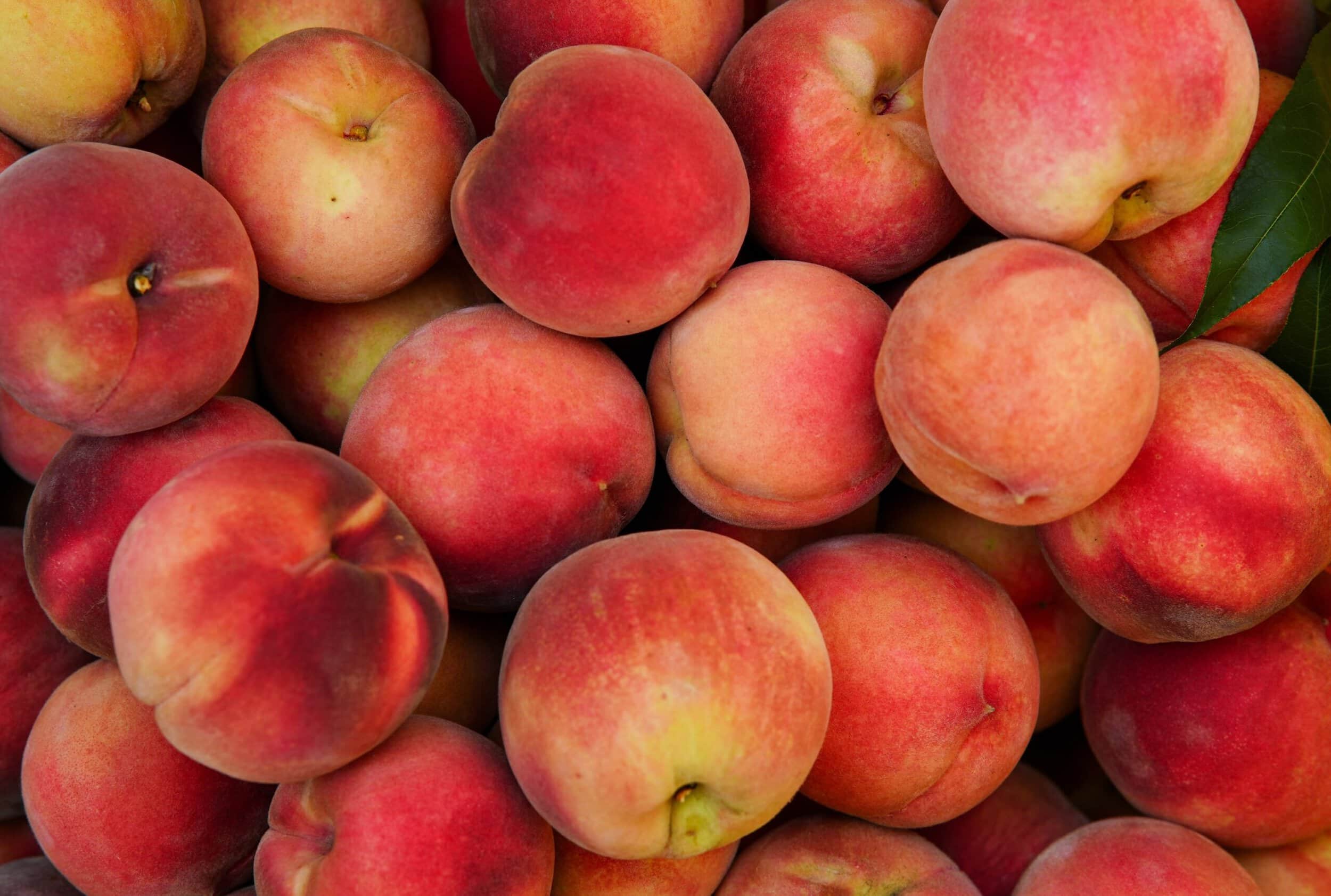



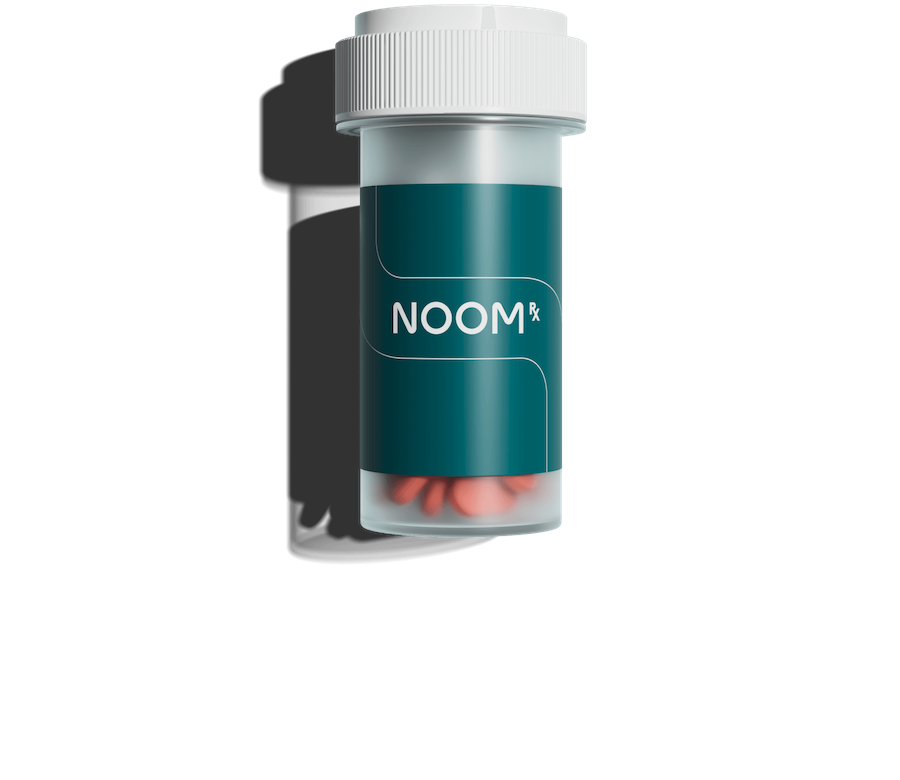



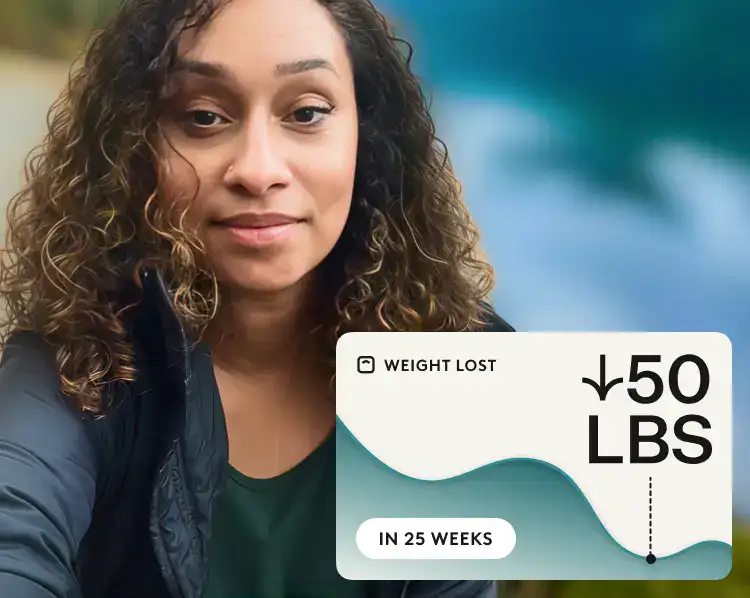
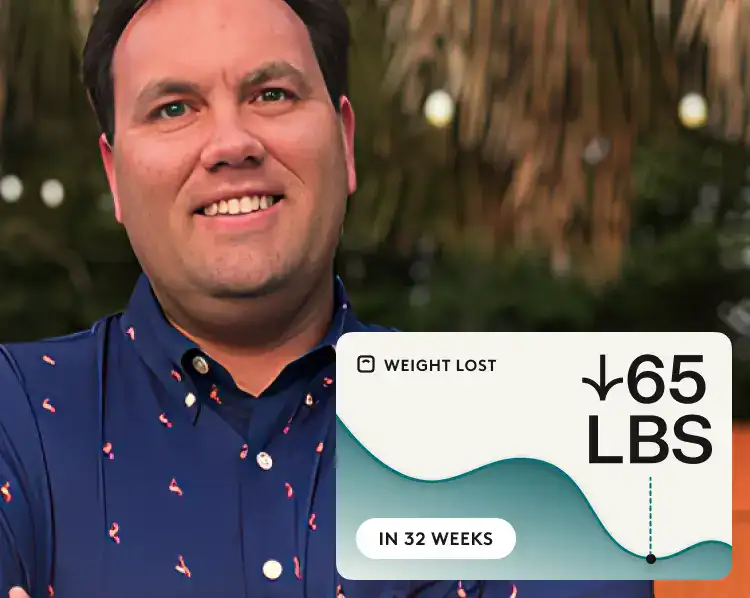
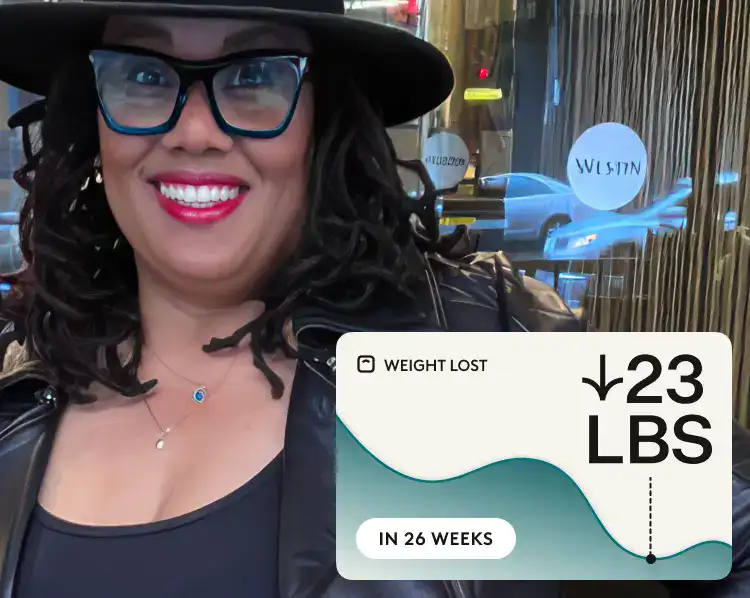
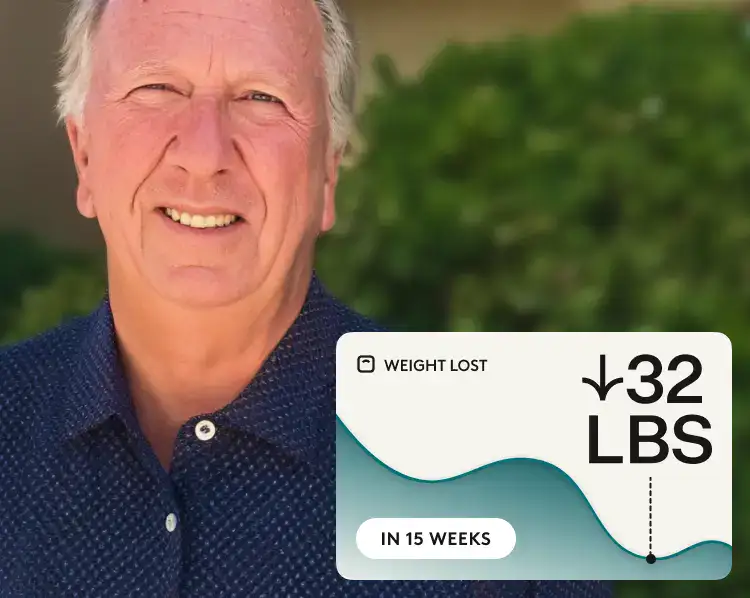
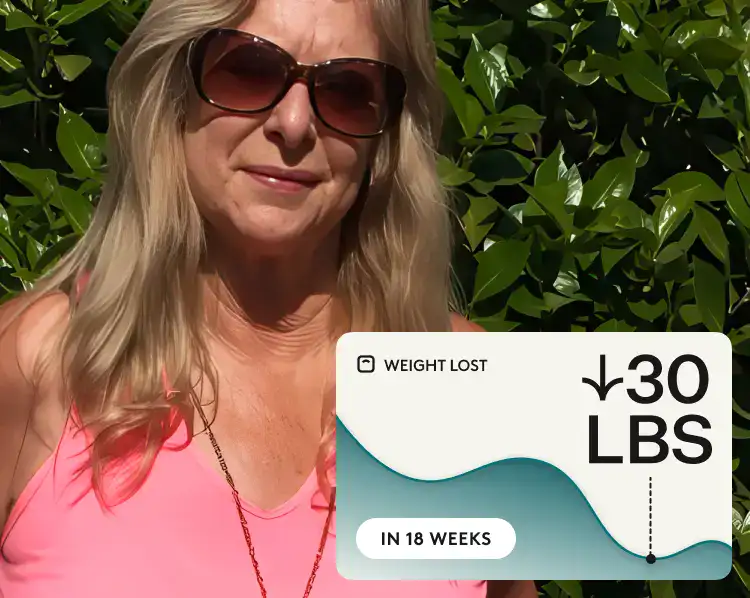
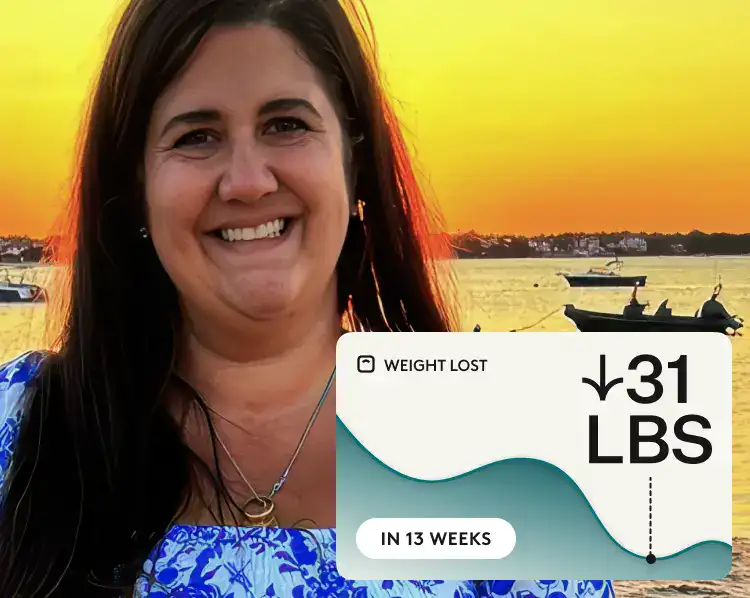

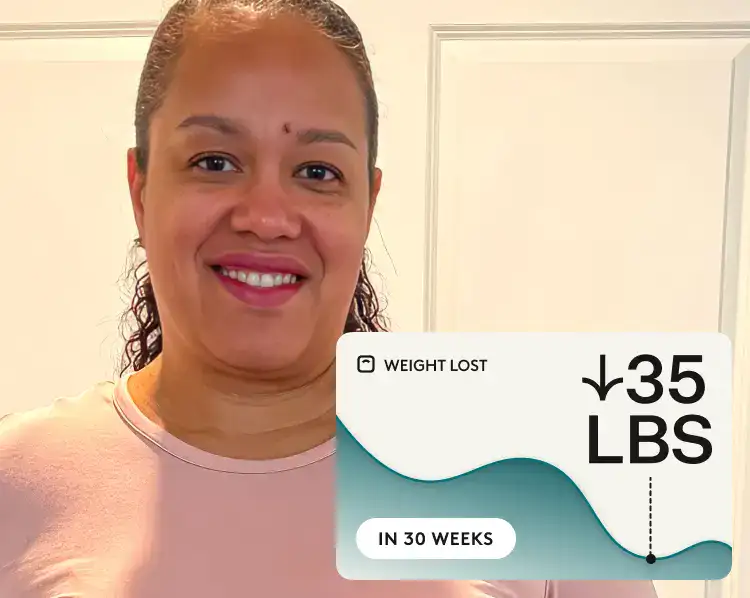
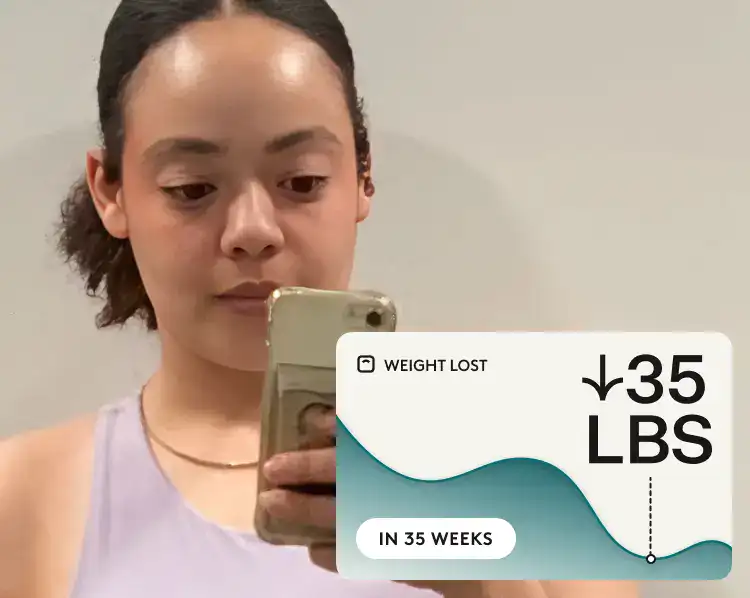

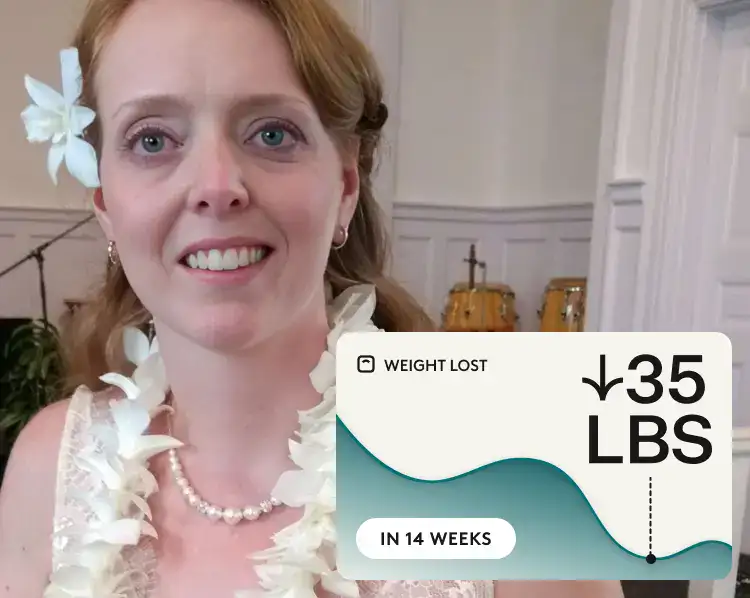
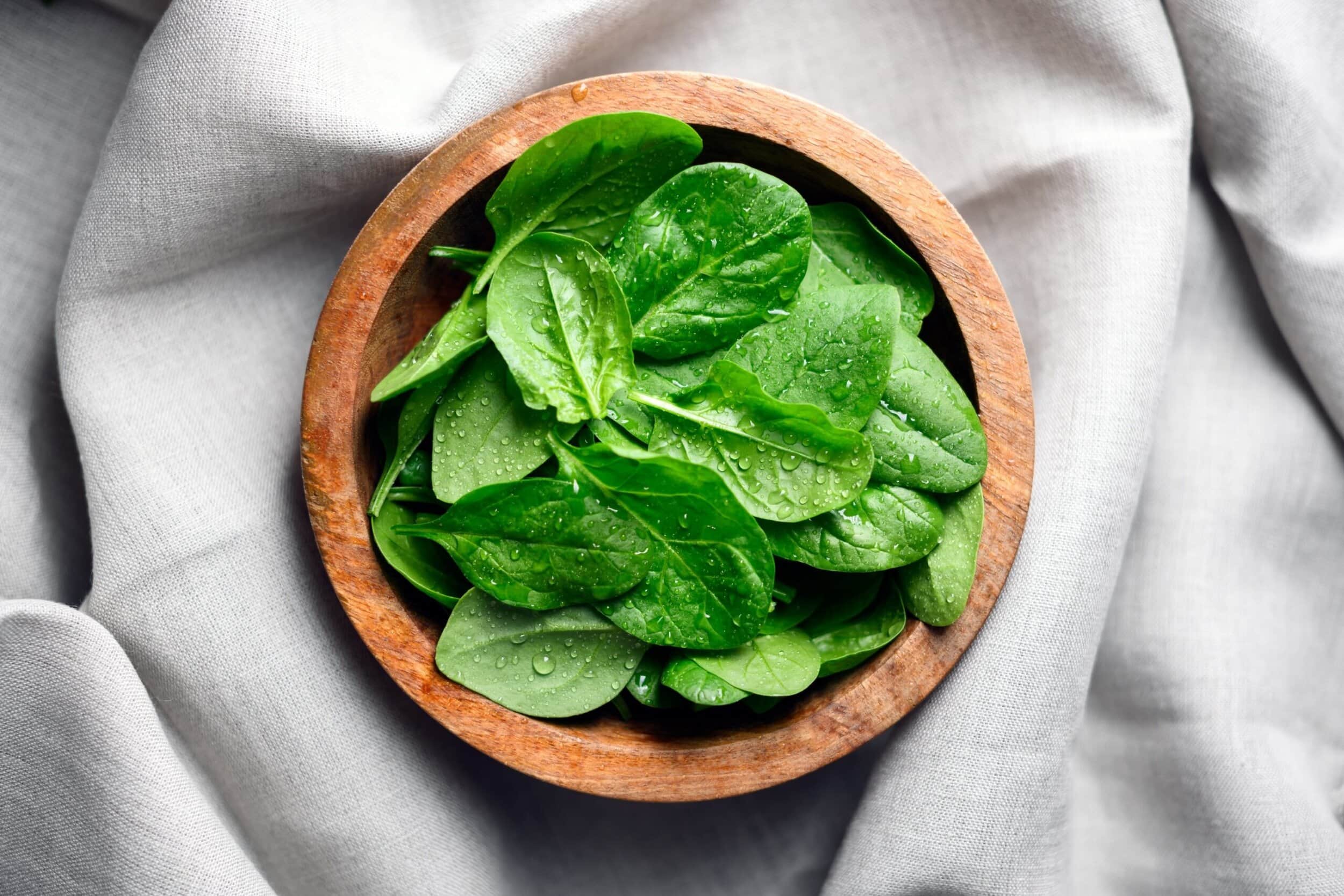
 Noom Team
Noom Team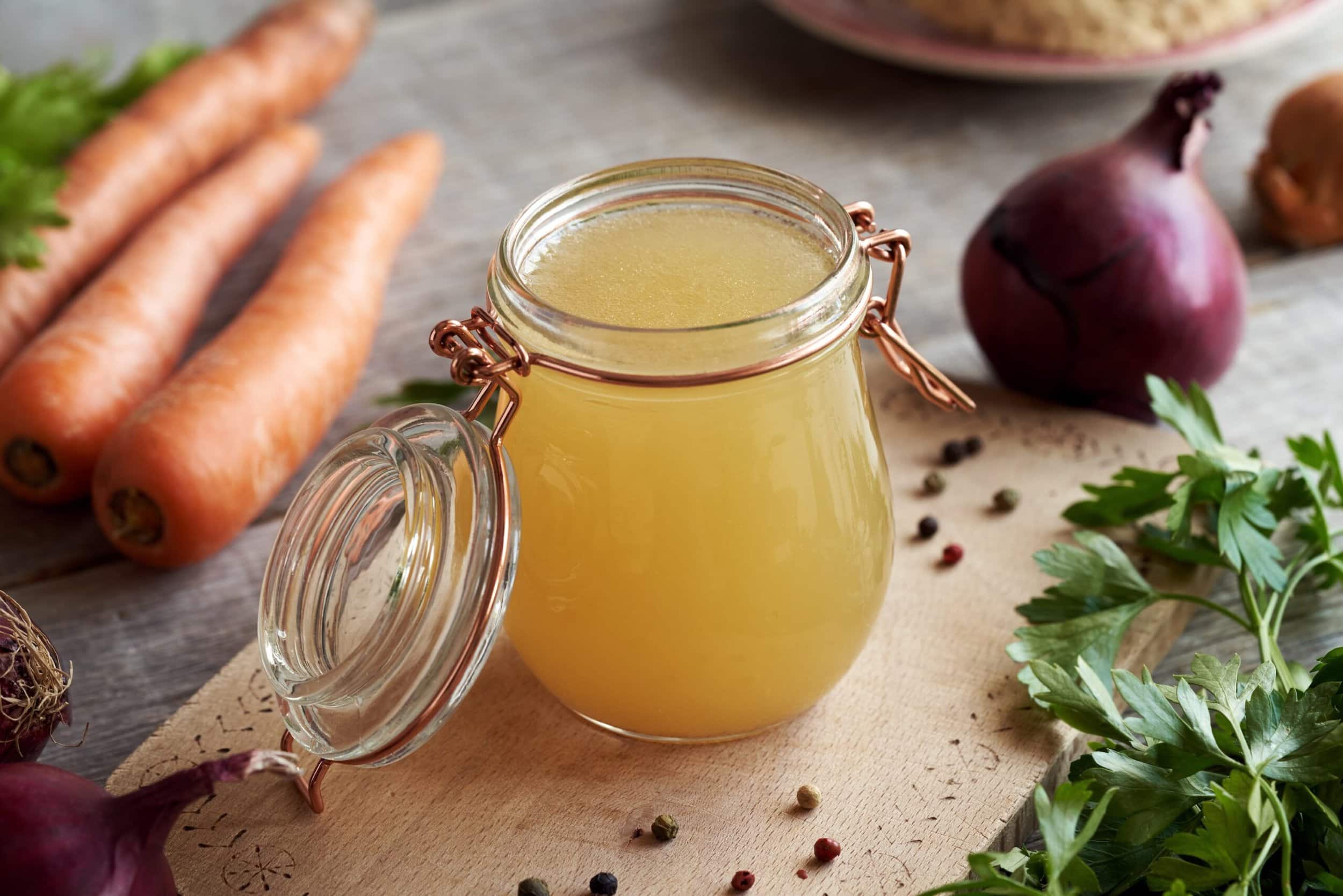
 Melissa Kay
Melissa Kay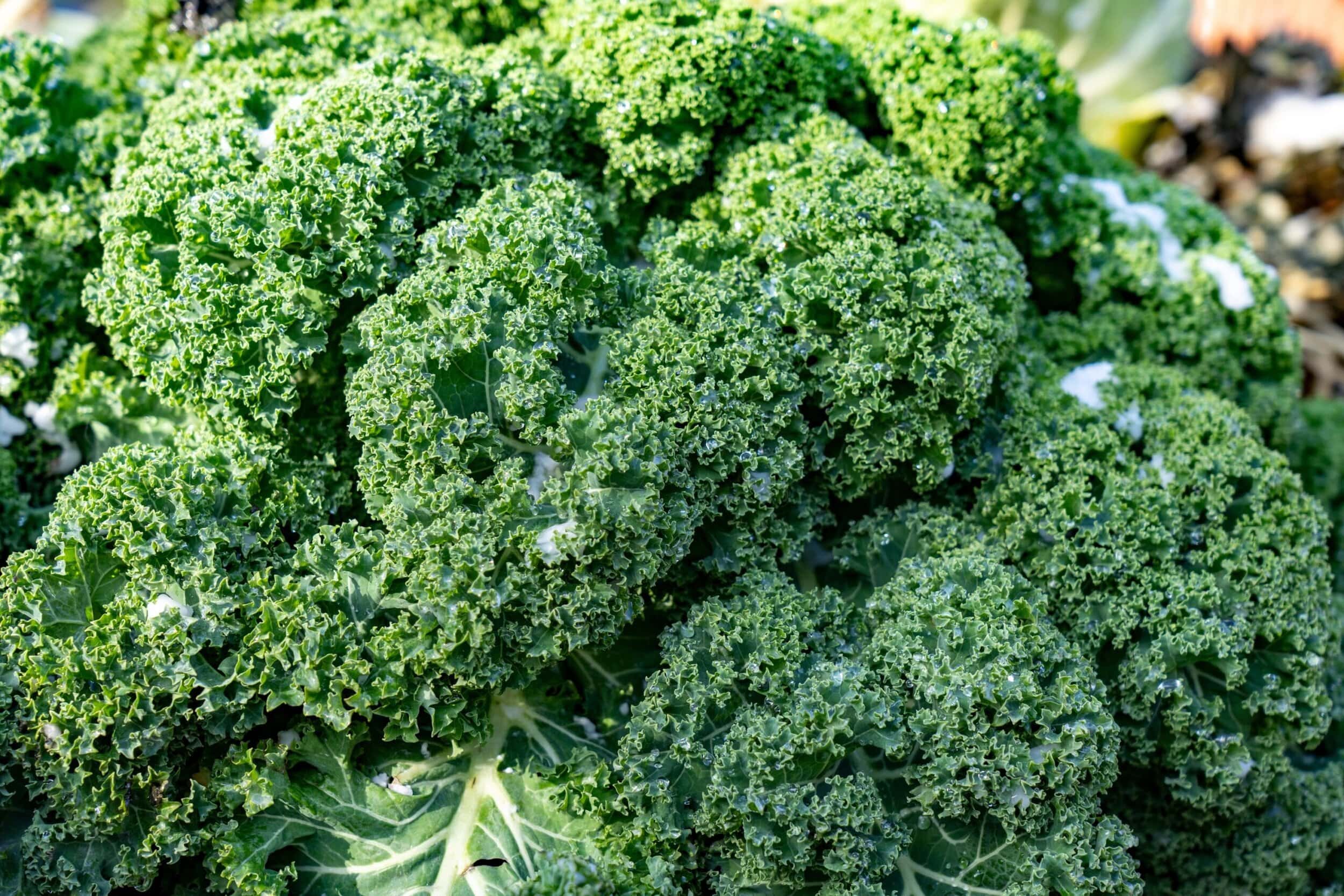

 Shoshana Fishbein
Shoshana Fishbein